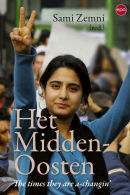(04-09-2013) A Plea for Peace in Syria
(03-09-2013) The spectre of Iraq
(28-08-2013) Stop US/NATO intervention in Syria
(28-08-2013) Syria, a pre-meditated act of aggression
(16-08-2013) The Wishful Thinking Left
(14-09-2013) Who is listening to the Syrian people?
(28-08-2013) Syria, a pre-meditated act of aggression
(18-08-2013) Iraqi mother suing Bush
(16-08-2013) The Wishful Thinking Left
(14-05-2013) USAID: Missionaries of US Imperialism
(28-08-2013) Stop US/NATO intervention in Syria
(14-05-2013) Iraq, Syria and the death of the modern Middle East
(07-05-2013) Iraq, Syria and the death of the modern Middle East
(03-04-2013) Sam Harris, the New Atheists, and anti-Muslim animus
(18-01-2013) No Other Choice For Citizens: Oppose Diversion of the National Budget For War or Perish
(28-08-2013) Stop US/NATO intervention in Syria
(03-06-2013) War Crimes as Policy
(18-01-2013) No Other Choice For Citizens: Oppose Diversion of the National Budget For War or Perish
(10-10-2013) Structural Inclinations - The Leaning Tower of Propaganda: Chemical Weapons Attacks In Ghouta, ...
(14-09-2013) Powerful - but amazing...
(14-09-2013) Who is listening to the Syrian people?
(24-01-2013) AYSE BERKTAY: Biographical Outline - PEN Turkey Award - Photos - more about Ayse Berktay
(28-08-2013) Stop US/NATO intervention in Syria
(28-08-2013) Syria, a pre-meditated act of aggression
(13-05-2013) Jeremy Scahill: Other Side of the Barrel of the Gun
(10-04-2013) Human Rights Groups Against Human Rights
(04-04-2013) The Road to Failure in Iraq
The BRussells Tribunal is independent and wants to remain independent.
The BRussells Tribunal is an activist think tank and peace organisation with a special focus on Iraq. Read more...




 The times they are a-changin' is het eerste grondige Nederlandstalig overzicht dat voorbij oppervlakkigheden en algemeenheden wandelt, en ook nog eens de hele regio bestrijkt, van Egypte en Tunesië tot Marokko, Libië, Syrië, Libanon, Palestina, Jemen, Jordanië, Irak, Bahrein en Israël. Daar bestaat een woord voor: een standaardwerk.
The times they are a-changin' is het eerste grondige Nederlandstalig overzicht dat voorbij oppervlakkigheden en algemeenheden wandelt, en ook nog eens de hele regio bestrijkt, van Egypte en Tunesië tot Marokko, Libië, Syrië, Libanon, Palestina, Jemen, Jordanië, Irak, Bahrein en Israël. Daar bestaat een woord voor: een standaardwerk.